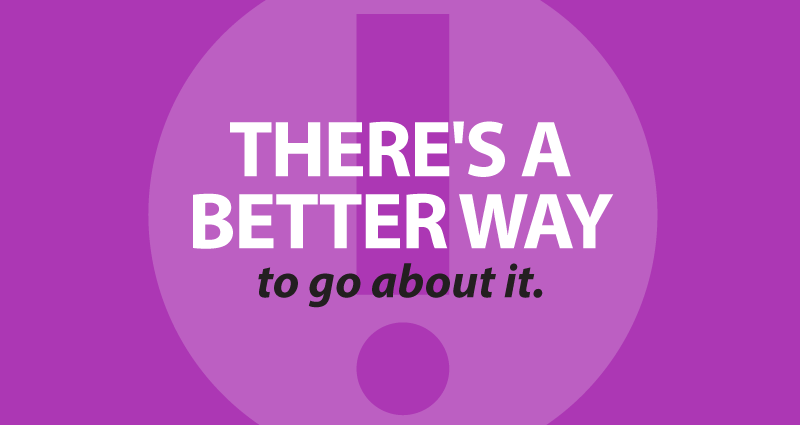
Maybe it’s time to ditch the RFP
Let’s say you have a big, important project, like a website redesign or a brand refresh, and you need to hire a vendor partner. So the thing to do is send out a Request For Proposals (RFP) to every company that you can find, then just sit back, wait for the responses, and pick the best one from the pile – Right?
Well, no. Not always.
Or at least, there’s a better way to go about it.
Before you send out an RFP, first start with these four questions:
1. Do I realistically have the budget to accomplish what I want in the way I want?
First, do your research (check with peers and discuss your “wish list” with trusted vendors for ballpark numbers) to make sure your expectations are in the ballpark, then clearly disclose your budget and timeline expectations in the RFP. Any vendor worth working with will be happy to show you how to make the most of your available budget. There’s absolutely no reason to be cagey about the numbers.
2. Am I sending out RFPs to a long list of companies I have no intention of hiring?
Stop. Wasting. Everyone’s. Time. Remember, the idea of an RFP process is to find experts who are the right fit. Do your research up-front, get in touch, have some conversations, and narrow it down to two or maybe three capable providers. I’m confident that most of my competitors will agree with me – if you already have a strong preference, then a proposal isn’t going to change your mind. If you’re just sending out the same RFP to every vaguely related firm that popped up in a Google search, or if you’re going through the motions because your boss wants you to “get some bids”, then quite frankly we all have better ways to spend our time.
3. Is this a laundry list or a strategic outline?
A list of 120 detailed questions with 40 pages of appended legalese might enable you to tick off checkmarks on a list, but will it tell you whether a vendor is really like to work with? Will it help you assess their expertise? What they really need to know are your goals and strategy for the project, and to define the parameters as clearly as possible. Remember, you’re hiring pros to solve a problem or reach a goal.
4. What happens if I ditch the RFP completely?
There’s a good chance you will be happier with the end result and you’ll spend less money and time. Do your diligence, find the right provider that fits your needs, schedule two-way conversations with all of the decision makers, share your brand guidelines, budget, and business objectives, and negotiate a price.
That’s the fair way to work with a partner.
- Are you scared yet? - October 22, 2024
- OMG! Who really IS our competition?!? - September 24, 2024
- Do 5-star ratings really mean anything? - August 27, 2024
